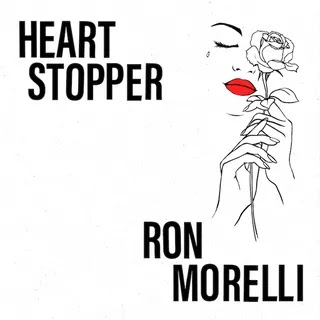After a string of misfires, the UK musician’s 14th album translates unimaginable loss into some of his most darkly moving music in years.
Tricky has always worn his bruised heart on his sleeve. His brilliantly desolate debut album, Maxinquaye, was inspired by his mother, who died when he was four years old, and a song like “Strugglin’” laid bare in excruciating detail his experiences of pain, darkness, and toil. Fall to Pieces, which contains some of the most darkly moving music that Tricky has produced since that debut album, was produced in the shadow of tragedy. Tricky’s daughter Mazy died in 2019 as he was beginning work on a new record. Here, on his 14th studio album, he translates that unimaginable loss into moments of nauseatingly raw emotion.
“Hate This Pain,” one of the first songs Tricky worked on after his daughter’s death, channels the sickening depth of his loss into music of visceral simplicity. Tricky’s production, particularly in his early years, was enveloped in a dank, psychedelic murk that seemed to ooze out of the grooves. “Hate This Pain,” however, is unusually and agonizingly clean, its surfaces exposed like a fresh wound, a pristine MTV Unplugged in New York to Maxinquaye’s Nevermind. The song centers on a blues piano trill and tiny dabs of cello, trumpet, and slide guitar, over which Tricky and new vocal partner Marta Złakowska trade lyrics of deepest despair. It’s his best song in decades but almost exhaustingly moving, with unvarnished lines like “What a fucking game/I hate this fucking pain” delivered with agonising intensity. “Vietnam,” in which Tricky and Złakowska share a whispered duet over a detuned guitar riff, and “Take Me Shopping” have a similarly barren simplicity, reminiscent of the bleakly beautiful English West Country blues that PJ Harvey pulled from the stone on Dry.
However personal the burden of Tricky’s grief, his collaborators have played a significant role in shaping the sound and feel of the album. Marta Złakowska, who Tricky discovered in a Krakow bar after a singer dropped out of his Polish tour, has the perfect voice for a Tricky vocal foil, her spectral tones the wisp of smoke to his cigarette-end mutter, while Marie-Claire Schlameus’s cello and Kristof Hahn’s slide guitar creep around the arrangements with the finesse of art thieves. It’s a shame that some of the album’s electronic touches—the minimal drum pattern on “Thinking Of” or the cheap-sounding bassline on “I’m in the Doorway”—feel rudimentary in comparison to the band’s graceful touch. But electronic experimentation does play a major role in two of the record’s most intriguingly unorthodox productions. ‘‘Running Off,” with a prominent sample from Croatian musician Đuka Čaić, is a kind of Eastern European electro blues, while “Fall Please,” with its stuttering synth riff and percussive nods to D.C. go-go , is almost upbeat in its outlook.
Tricky calls “Fall Please” “the closest I’ve got to making pop,” which may overlook the pop nous of songs like Maxinquaye’s “Black Steel” (and overestimate mainstream taste for skeletal go-go production). But “Fall Please”—like Fall to Pieces as a whole—does share the laser-sharp emotional focus and melodic efficiency of the best pop music. Bar the rare moments of clunky electronics, almost every sound, touch, and shade on Fall to Pieces feels like it had to be there, in blessed contrast to the rambling dead ends, failed experiments, and misjudged covers of Tricky’s recent records. Fall to Pieces is an audacious cri de coeur that ultimately finds strength in adversity where others might fall apart.











%20Music%20Album%20Reviews.webp)




0 comments:
Post a Comment